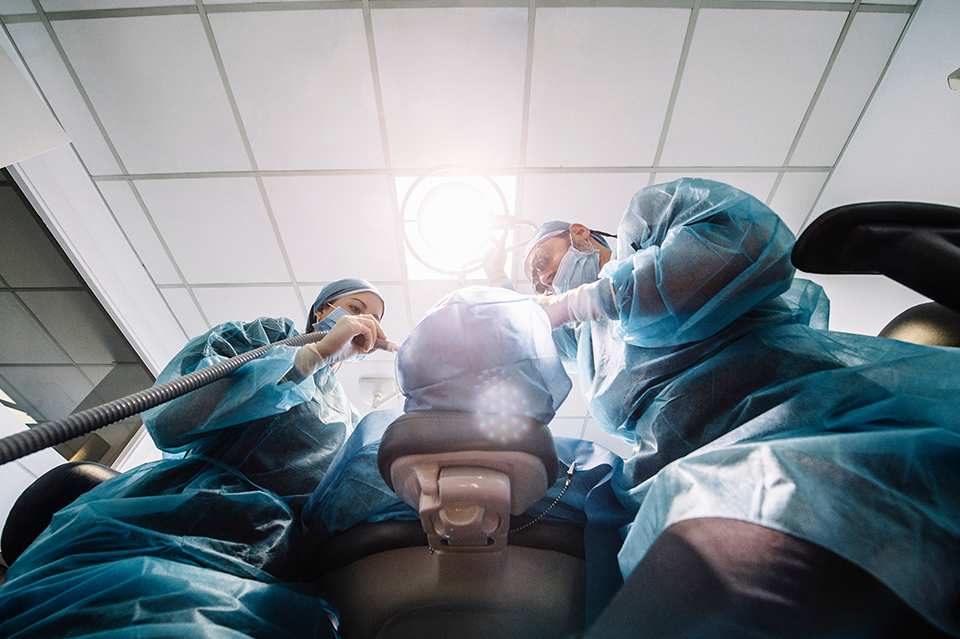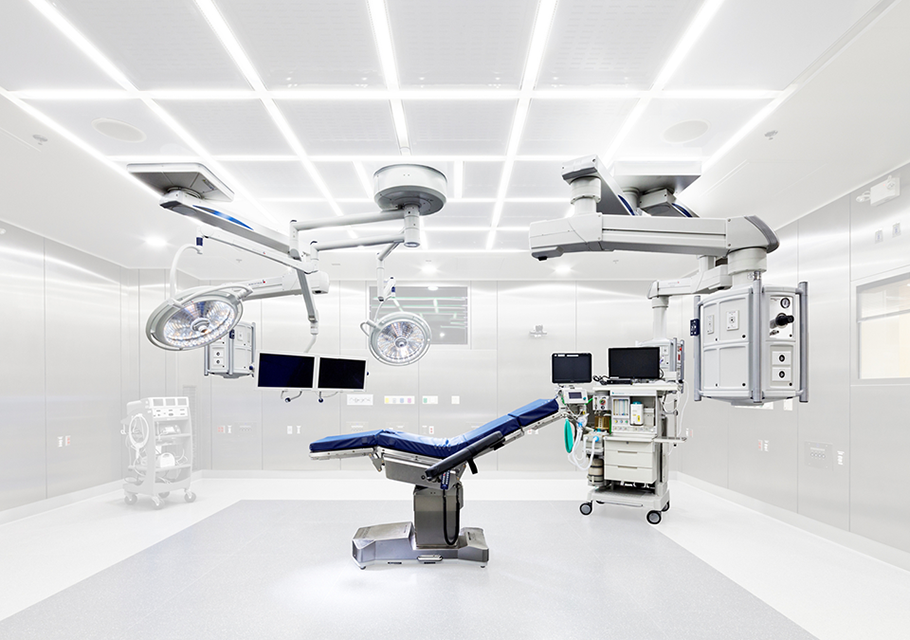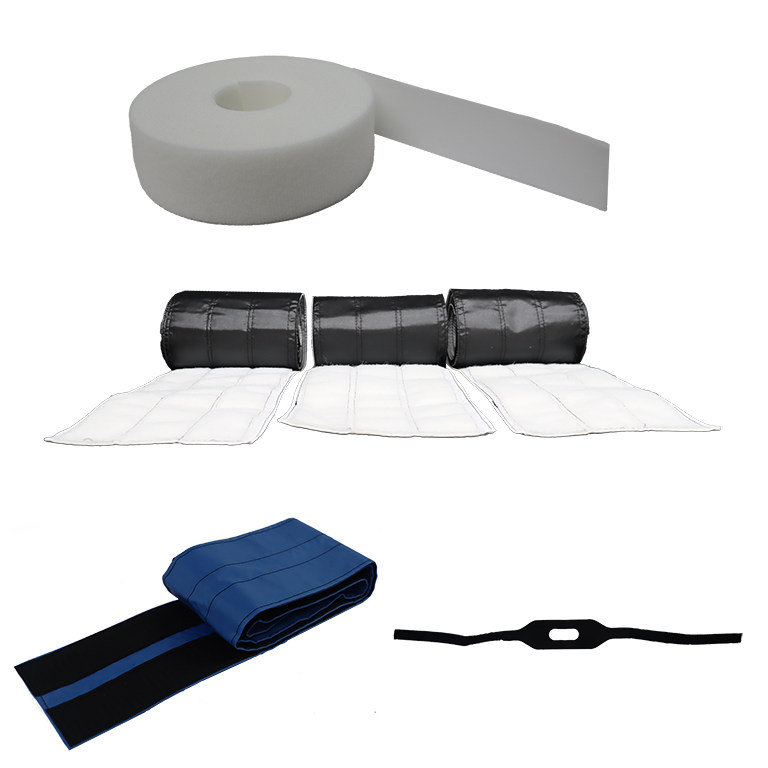A Comprehensive Guide to Surgical Straps in the OR
In the high-stakes environment of the operating room, every piece of equipment plays a critical role in ensuring patient safety and surgical success....
4 min read
Domico Med-Device Updated on December 2, 2024
In the realm of modern surgery, precision and patient comfort are paramount. Achieving optimal surgical outcomes hinges on a multitude of factors, not least of which is the effective positioning of the patient. Surgical table extenders play a critical role in this aspect, ensuring that both the surgeon and the patient are in the best possible condition for the procedure. This blog post delves into the significance of surgical table extenders, exploring their types, applications, and benefits in enhancing surgical precision and patient comfort.
Surgical table extenders come in various forms, each designed to address specific needs in the operating room. Understanding the different types of extenders is crucial for appreciating their versatility and utility.
One of the primary types of table extenders is the Bariatric Table Extender. These extenders are specifically designed to widen the surgical table, thereby increasing patient compatibility. As obesity rates continue to rise globally, the demand for bariatric surgery and related procedures has grown. Bariatric table extenders ensure that larger patients can be accommodated comfortably and securely on the surgical table, facilitating better access and positioning for the surgeon. Bariatric table extenders are vital in enabling safe and effective procedures for larger patients. These extenders provide additional support, which helps to reduce the physical strain on patients during surgery. By ensuring that patients are well-supported and comfortably positioned, these extenders contribute to a smoother surgical process and faster recovery times.
 Special Procedure Table Extenders
Special Procedure Table ExtendersAnother notable type of table extender are special procedure table extenders. Unlike bariatric extenders which increase patient compatibility, these extenders are designed solely to increase versatility. Extenders like the Domico Med-Device AD7 Mayfield Table Extender are equipped with accessory rails that allow for the attachment of various surgical tools and devices. For instance, cranial fixation devices can be attached to Mayfield extenders, providing the necessary stability for delicate neurosurgical procedures. Additionally, accessories like keyboard mounts can be added, enhancing the functionality of the surgical setup. The versatility that special procedure table extenders add makes them invaluable in a wide range of surgical disciplines. By allowing for the secure attachment of critical devices, these extenders ensure that surgeons have everything they need at their fingertips, improving efficiency and precision. Whether it's for cranial fixation or other specialized procedures, Mayfield extenders enhance the overall surgical experience.
Precision in surgery is non-negotiable. The role of surgical table extenders in stabilizing patients cannot be overstated. By providing a stable and adjustable platform, these extenders enable surgeons to position patients most advantageously, reducing the risk of errors.

Some table extenders are designed to be used in tandem with straps which serve as essential patient positioning devices, ensuring that the patient remains securely in place throughout the procedure. This stability is crucial, particularly in complex surgeries where even the slightest movement can compromise the outcome. By minimizing patient movement thanks to the incorporation of straps, table extenders enhance surgical precision, allowing surgeons to focus entirely on the task at hand.
Proper stabilization provided by table extenders is critical for maintaining the patient's position, especially during lengthy or intricate surgeries. This stability not only prevents accidental shifts that could affect surgical precision but also allows for the use of additional patient positioners that can be adjusted to fit the specific needs of the surgery.
The use of positioning aids with table extenders further assists in achieving proper patient positioning. These devices work in tandem with table extenders to ensure that patients are not only stable but also positioned in a manner that optimizes surgical access and visibility. For example, in orthopedic surgeries, positioners like the Domico Med-Device Leg Brace can hold an extremity still to ensure that the bone is aligned properly.
In neurosurgery, precise head positioning facilitated by table extenders with attached cranial fixation devices ensures that surgeons can perform delicate procedures with high accuracy. Similarly, in abdominal surgeries, patient positioners help maintain the optimal angle and orientation of the body, allowing for better access to the surgical site and reducing the risk of complications.
While surgical precision is critical, patient comfort is equally important. Table extenders contribute significantly to this aspect, ensuring that patients experience minimal discomfort before, during, and after the procedure.
 Improving Patient Comfort with Bariatric Table Extenders
Improving Patient Comfort with Bariatric Table ExtendersBy widening the surgical table, Bariatric Table Extenders provide ample space for larger patients, reducing the physical strain and discomfort associated with being confined to a narrow table. This not only improves patient comfort but also helps in reducing anxiety and stress, leading to a smoother surgical experience.
Comfort is a key factor in patient outcomes, as a relaxed and comfortable patient is less likely to experience complications and more likely to recover quickly. Bariatric table extenders ensure that patients of all sizes are accommodated with dignity and care, contributing to an overall positive surgical experience.
Positioning aids play a vital role in enhancing patient comfort. These aids, used in conjunction with table extenders, help distribute the patient’s weight evenly, preventing pressure sores and other discomforts that can arise from prolonged immobility. For instance, table extender pads provide additional cushioning, further enhancing patient comfort during lengthy procedures.
Positioning aids, such as pads and cushions, are designed to conform to the patient's body, providing customized support that reduces the risk of pressure points and discomfort. By using these aids, medical staff can ensure that patients remain comfortable and stable throughout the surgery, which is particularly important for procedures that require extended periods of immobility.
The versatility of surgical table extenders is significantly enhanced by the addition of accessory rails, which allow for various attachments that can be tailored to specific surgical needs.
Accessory rails transform standard surgical tables into multifunctional workstations. This versatility is particularly beneficial in specialized surgeries where additional tools and devices are required. For instance, cranial fixation devices can be attached for neurosurgeries, ensuring that the patient’s head remains immobile and in the optimal position.
In addition to cranial fixation devices, other specialized attachments can be used to enhance surgical procedures. These include instrument trays, imaging devices, and support arms, all of which can be easily mounted on the accessory rails to provide surgeons with quick and convenient access to the tools they need.
In addition to cranial fixation devices, keyboard mounts can also be attached to surgical table extenders. These mounts are particularly useful in image-guided surgeries that require the use of a computer to view camera feeds or vital signs. By having a keyboard readily accessible, surgeons can seamlessly integrate technology into the operating room, enhancing both precision and efficiency.
Keyboard mounts allow for the integration of computer systems into the surgical environment, enabling surgeons to access patient records, imaging data, and other critical information without leaving the operating table. This seamless integration of technology supports better decision-making and improves overall surgical outcomes.
In conclusion, surgical table extenders are indispensable tools in the operating room, enhancing both surgical precision and patient comfort. Whether it’s through widening the table for better patient compatibility or providing the necessary rails for accessory attachments, these devices ensure that surgeries are performed with the highest degree of accuracy and care. As the medical field continues to advance, the role of surgical table extenders will only become more prominent, solidifying their place as essential components of effective and compassionate surgical care.
By understanding and utilizing the various types of surgical table extenders available, medical professionals can significantly improve the quality of care they provide, leading to better surgical outcomes and enhanced patient satisfaction.
Want to learn more? Check out these blog posts for further information about surgical table extenders and other related accessories:

In the high-stakes environment of the operating room, every piece of equipment plays a critical role in ensuring patient safety and surgical success....

Patient safety is the cornerstone of any successful surgical procedure, and ensuring the well-being and stability of patients is a top priority for...

Choosing the right surgical straps is essential for ensuring patient safety, comfort, and successful surgical outcomes. With various options...